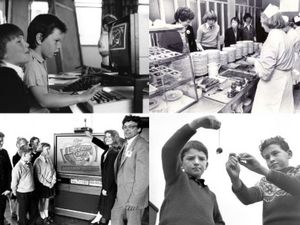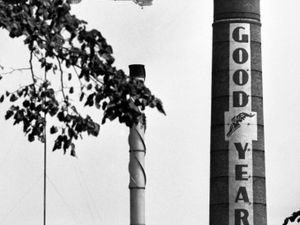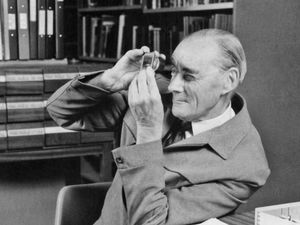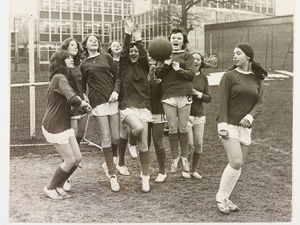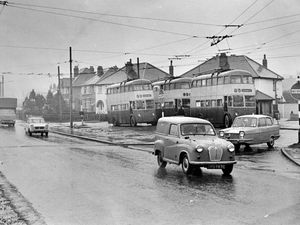Memories of football legend Fred Pentland, an England star and a hero to fans in one corner of Spain
Fans transfixed by the silk smooth, sophisticated football of Spain in the Euros will be taken aback to learn those superstars’ sublime skills are down to one man – from Wolverhampton.
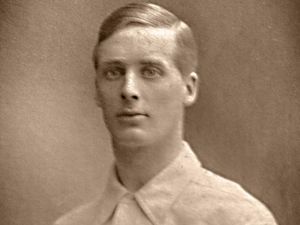
Yes, take a Bilbao, Fred Pentland, a soccer supremo who ruled before false 9s, holding midfielders and wing-backs. Back then, top player were too “sick as a parrot” to post about social injustice.
He was the man who put the “awright our kid” into ole football, introducing the intricate, short, keep the ball on the ground style that has become Spain’s trademark.
And Fred, whose own career began with such modest Black Country outfits as Avondale Juniors and Willenhall Swifts, is still regarded as one of the nation’s greatest managers. He was the first to guide a Spanish club to the league and cup double.
And he achieved the great feat twice with Athletic Bilbao, in 1930 and ’31, as well as winning four successive Copa del Rey cup finals, something that has never been equalled. Fred was also the architect of mighty Barcelona’s biggest ever defeat, a 12-1, 1931 thrashing to Bilbao.
Make no mistake, Fred was much more than the Mourinho of his time – a time of Brylcreem, beef tea and half-time oranges. He was a tactical genius when there weren’t many tactics.
Forget the tried and trusted 4-4-2 formation, Fred shocked the world by unveiling his 2-5-3 style.
But then Fred’s approach was always unconventional.
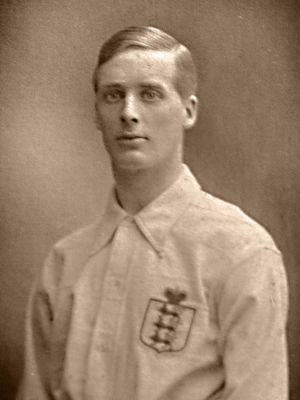
He spent his first training session with the Bilbao squad teaching the correct way to tie boot laces, telling the mystified players: “Get the basics right and the rest will follow.”
He changed the way topflight football was played, although England’s top brass were slow in embracing the polished Pentland style.
Our national team paid for not heeding Fred’s words. He was one of the coaches when Spain beat the Three Lions 4-3 in 1929 – England’s first ever loss to a side from outside the UK.
On its website, Athletic Bilbao still speak of Frederick Beaconsfield Pentland with reverence. Its website tells of the debut owed to “Mr Pentland”:
“It was not just the silverware that turned Fred Pentland into an Athletic legend. He ushered in professional standards, changed training habits and introduced tactics based on intensity, possession and wing play that have since become synonymous with Athletic Club.
“What’s more, Pentland did all this with style and personality, his sense of humour and humanity ensuring that even a century later he remains a revered figure.”
He was no-nonsense. In magazine “These Football Times”, Jack Rodway wrote: “If you couldn’t play the way he wanted you to, you’d be shown the exit. Not that this was a bad thing. He was ahead of his time and Spain had never seen a manager like Pentland before.”
In his time, managers had yet to become fashion icons. They did not parade around the technical area in waistcoats and designer suits.
Fred paced the touchline with a fat cigar permanently clamped between his teeth and a bowler hat perched on his head. That trademark look earned the ashen-faced boss the nickname El Bombin - The Bowler.
And that very English hat quickly became a club symbol. In a strange ritual, Fred allowed his players to joyously stamp on it after any memorable victory.
In the street, he strolled sporting that ever-present bowler and twirling a brolly. Fred fitted Bilbao fans’ vision of a successful English gent – and he embraced the role.
Yet his is an unlikely, international football fairytale that grew from humble beginnings. Fred, one of seven children, was born in Lord Street, Wolverhampton, on July 29, 1883, to Irish parents. Dad Joseph worked as a printer.
He worked in a Birmingham gun-making factory before being signed, at just 17, by second division outfit Small Heath, who would later become Birmingham City.
At Small Heath, Fred’s contribution was less than small, his impact insignificant. He made only one first team appearance as inside forward in a losing FA Cup tie and was sold to Blackpool in 1903.
It would be the first of many moves for the local lad. After only eight appearances, Fred shifted from the seaside club to Blackburn Rovers – and really found his footballing feet.
Rovers fans loved Fred, who played 51 times for the outfit, but the club still tried to off-load him in 1906 for the princely sum of £250.
There were no takers and Fred was forced to ply his trade away from Football league spotlight. The next stop was Southern League club Brentford.
As he waited on the station to depart Blackburn, players and fans, accompanied by the Palace Theatre Band, broke into a chorus of “For He’s A Jolly Good Fellow”.
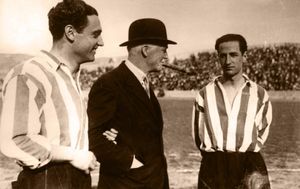
It seemed Fred’s career was slipping towards non-league oblivion, yet in 1908 Middlesbrough offered a second chance of first division football.
Fred grasped it with both hands, making 92 appearances from 1908 to 1912, bagging 11 goals and collecting five England caps.
It was his last hurrah. From there, the fag end of Fred’s career smouldered in football’s dimly lit basement: Halifax languished in the Midland League, Stoke in the Southern.
As a player, he was good, but far from great. One sportswriter reflected: “His blemish was a tendency towards over elaboration.”
As a continental manager, that “tendency towards over elaboration” would serve Fred well. Booting the ball up the field was not his style.
His arrival on the national stage came after a bumpy ride.
After his playing days were ended by injury, Fred travelled to Berlin to learn his trade as a coach and, by 1914, was at the helm of Germany’s Olympic football team.
A little thing called the Great War prevented him from seeing that job to completion.
When the conflict broke out, Fred was interned in Ruhleben, a civilian detention camp where the 5,500 “guest” already included a number of football stars. With the likes of England’s Sam Wolstenholme and Fred Spiksley and Scotland’s John Cameron among inmates, Fred became a football boss behind barbed wire.
He had a pool of top former players at his disposal, the list also including Edwin Dutton (Germany), Steve Bloomer (England) and John Brearley (Spurs and Everton).
As chairman of Ruhleben Football Association, he organised a full programme of matches and, in a move that has echoes of Sly Stallone’s panned PoW film “Escape to Victory”, assembled a World XI squad.
Fred was a big-time coach in custody.
He returned home in 1918, married nurse Nahneen Hayes – the couple had one daughter - and a year later again packed his bags to manage AS Strasbourg.
From there, he accepted the job of France’s 1920 Olympic football team coach and steered the side to the semi-finals.
Fred was a man prepared to travel for work and in 1920 began his 15 year stint in Spain with the top job at Racing de Santander. He’d also take charge of Bilbao and Atletico Madrid before being forced back to Britain by the Spanish Civil War.
Here, he swapped the magic and beauty of Spanish football for the mud and nettles standards of fourth division football with Barrow.
Fred died, aged 78, on March 16, 1962, in the Dorset village of Lytchett Matravers.
By then, England had all but forgotten his immense contribution to the modern game. In Spain, he remained a hero until the end. He will always be a legend.
In 1959, Bilbao staged a testimonial match against Chelsea at San Mames in honour of the great man and, with thousands roaring every faltering step he took on the pitch, Fred kicked off the game.
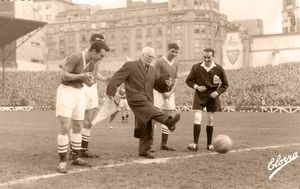
Gaizka Atxa, president of the Mr Pentland Club, a British based Athletic Bilbao supporters group, said: “You hear his name on the street and everyone knows it is a man with a bowler hat and a cigar. He has maintained the status of a myth or a legend.”
Remember this as you watch Euro 2024.
The free flowing passes, the intricate close quarter ball play…it was all created by a man from Wolverhampton.
Quite simply, Fred Pentland shaped the modern game. He invented it.
And that’s why every fan should raise his or her hat to Fred. Naturally, El Bombin would prefer it to be a bowler.

